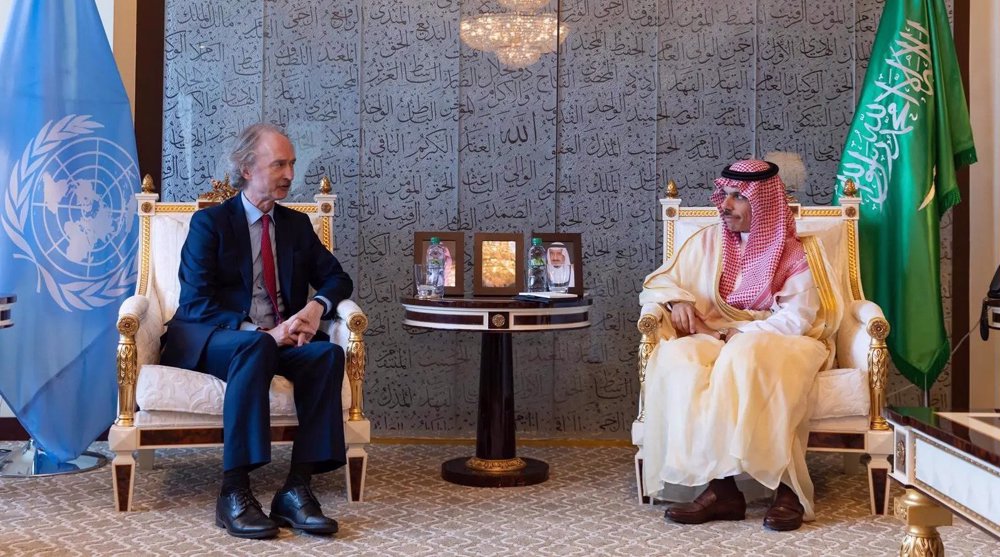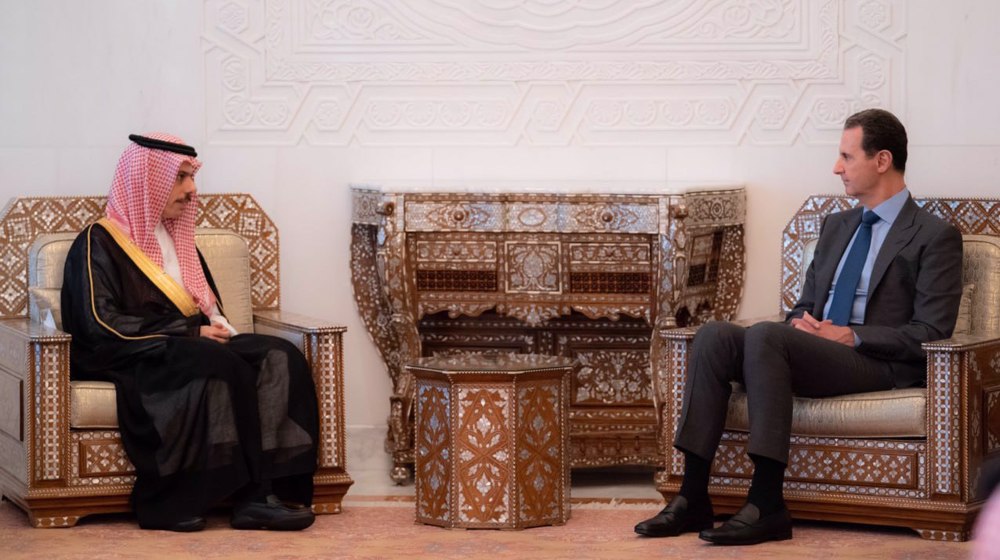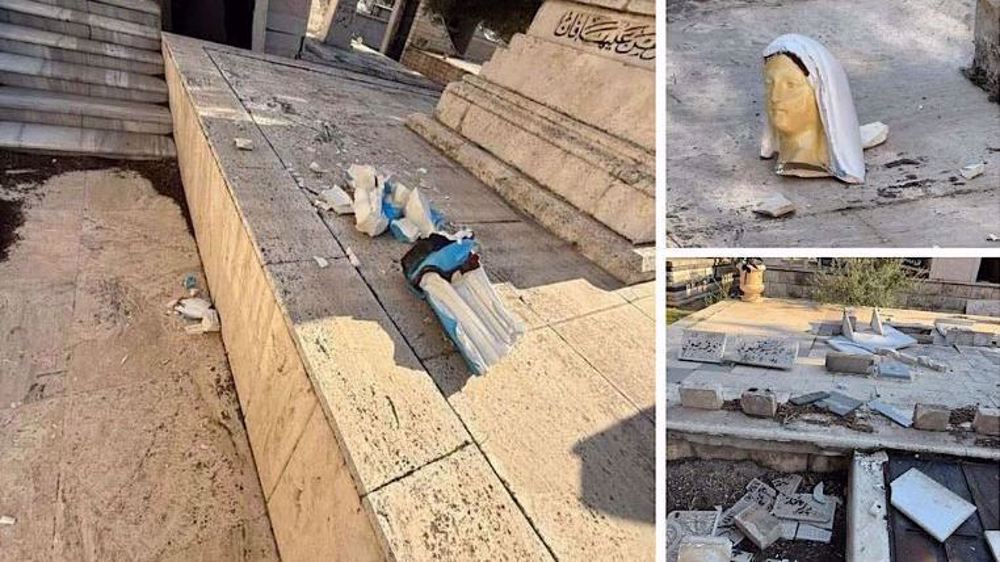In meeting with UN envoy, top Saudi diplomat stresses Riyadh's commitment to political solution for Syria
Saudi Arabia’s foreign minister has underscored the necessity of finding a political solution for Syria, expressing Riyadh’s commitment to the stability and territorial integrity of the conflict-ravaged Arab country.
Prince Faisal bin Farhan Al Saud made the remark in a meeting with Geir Pedersen, the United Nations special envoy for Syria, on the sidelines of the 78th session of the UN General Assembly in New York on Monday.
“During the meeting, they discussed the latest developments on [a] political solution to the Syrian crisis and the efforts exerted by the kingdom of Saudi Arabia and the UN in this regard,” the state-run Saudi Press Agency said on its website.
“Prince Faisal reiterated the kingdom’s keenness to exert all efforts to reach a political solution to the Syrian crisis to preserve its unity, security, stability and Arab affiliation, and achieve progress and prosperity for its people,” the agency added.
Since 2014, the US has deployed forces and military equipment in Syria without any authorization from Damascus or a UN mandate under the pretext of fighting Daesh, which emerged as Washington was running out of excuses to extend its regional meddling or enlarge it in scale.
American forces sustain their illegal presence on the Syrian soil although Damascus and its allies defeated the Takfiri terrorist group in late 2019.
Saudi Arabia’s commitment to the preservation of Syrian sovereignty comes as Riyadh and Damascus agreed in March to resume diplomatic relations and re-open embassies after more than a decade.
The move prompted other Arab countries to race for the re-establishment of ties with Syria.
Two months later, Arab government representatives in Cairo voted to return Syria to the Arab League after a 12-year suspension and all 13 of the 22 member states that attended the session endorsed the decision.
The Arab League suspended Syria’s membership in November 2011, citing an alleged crackdown by Damascus on opposition protests, with Syria denouncing the move as “illegal and a violation of the organization’s charter.”
Eight Palestinians killed as Israel attacks Gaza school, hospitals
VIDEO | Rome, Milan host new protests in solidarity with Palestinians
Dec. 21: ‘Axis of Resistance’ operations against Israeli occupation
Spain jurists demand ties with Israel ties be cut
VIDEO | Press TV's news headlines
VIDEO | Iran honors top Science Olympiad medalists
VIDEO | Austrians arrested at Gaza protest in Vienna
10 killed in bus crash in western Iran











 This makes it easy to access the Press TV website
This makes it easy to access the Press TV website